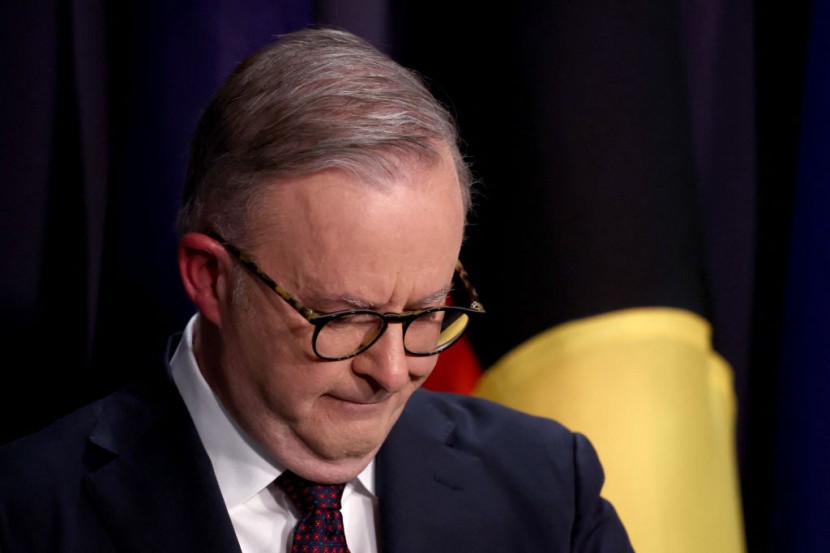
Australia rejected a referendum proposal on Saturday (October 14) creating an indigenous advocacy committee to offer advice to the federal parliament in Canberra on policies affecting Aboriginal and Torres Strait Islander people, which the government recognized as its most disadvantaged ethnic minority.
A national majority of more than 50% of all voters and a majority of four states voting "Yes" was needed to pass the Voice referendum.
According to Australian public broadcaster ABC, over 60% of the vote opposed the Voice to Parliament, with almost half of the votes counted by Saturday.
On the local level, all six states and the Northern Territory have unanimously voted against the referendum, while the Australian Capital Territory (ACT) - the federal region surrounding Canberra - was the only area of the country to vote for it.
The broadcaster also noted a trend where only the major state and territory capitals have a significant "Yes" vote, while it diminished elsewhere beyond city limits.
As of writing, Melbourne was the highest among the capital cities and electorate areas supporting the Voice Referendum at 77.4%, while Adelaide and Darwin were the only state or territory capitals that voted "No."
Indigenous Australians, 'Yes' Supporters in Mourning
According to Voice supporters, they have called a week of silence and mourning to "grieve the outcome" of the referendum, including flying the Aboriginal and Torres Strait Islander flags at half-mast.
Unlike other nations with similar histories, such as Canada and New Zealand, Australia has not formally recognized or reached a treaty with its First Peoples, Reuters reported.
Meanwhile, opponents of the Voice feared it would divide Australians along racial and ideological lines without reducing indigenous disadvantages. They added it could be a first step toward indigenous claims for repatriation and compensation.
Read Also : 'Monsters' in South-West Sydney Rally to Support Hamas; Australia Jewish Community Disapproves
Political Reactions
Meanwhile, the result of the vote reverberated in Canberra's parliament halls.
Australian Prime Minister Anthony Albanese, who was an active proponent of the referendum prior to taking office, lamented the outcome in a statement on Saturday night but also respected it as the voice of the Australian people.
"We argued for this change not out of convenience but from conviction, because that's what people deserve from their government," he said.
Beside him was Indigenous Australians Minister Linda Burney, who tearfully said the "No" vote meant a "day of sadness" for many Australians but not the end of reconciliation. She added that there would be more options to consider in the coming months, including a proposal to create a treaty between the Australian government and Indigenous Australians.
Meanwhile, Opposition Leader Peter Dutton said the referendum's outcome was beneficial for the country. He also took the vote result as an opportunity to accuse Albanese of arrogance in his campaigning for constitutional change and promote the creation of a royal commission into child sexual abuse in indigenous communities.
Shadow Indigenous Australians Minister Jacinta Nampijinpa Price, on the other hand, said that Australians needed to "step away from grievance" in creating better outcomes for Indigenous Australians and move forward with promoting indigenous policy and the indigenous narrative.
Related Article: Indigenous Australian Lobbyist Denies Calling 'No' Voters in Voice Referendum 'Racist,' 'Stupid'
© 2025 HNGN, All rights reserved. Do not reproduce without permission.








